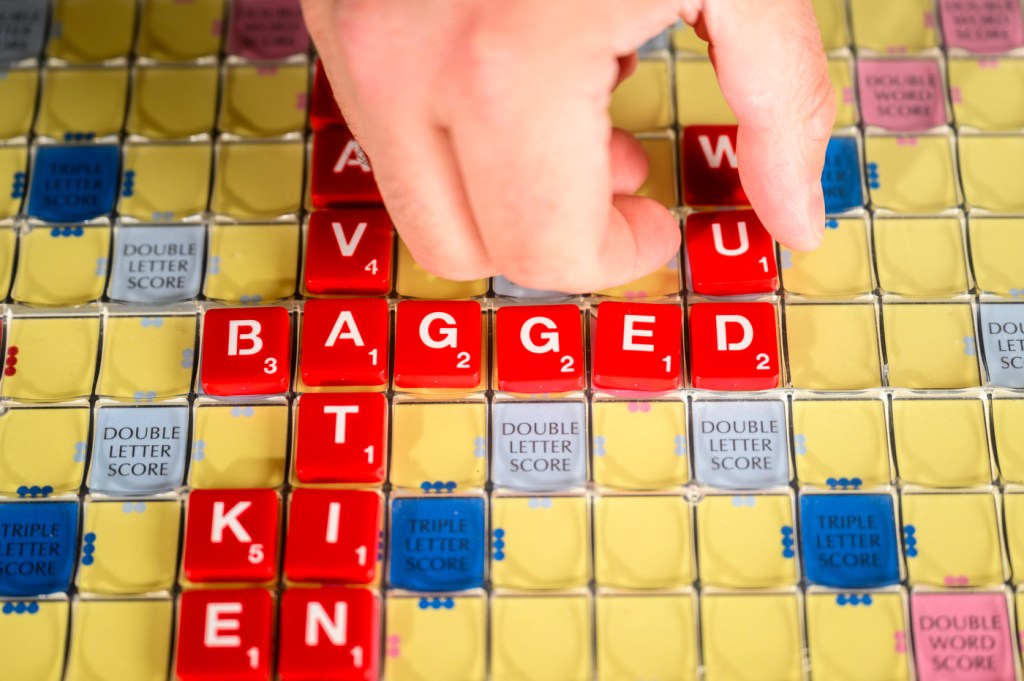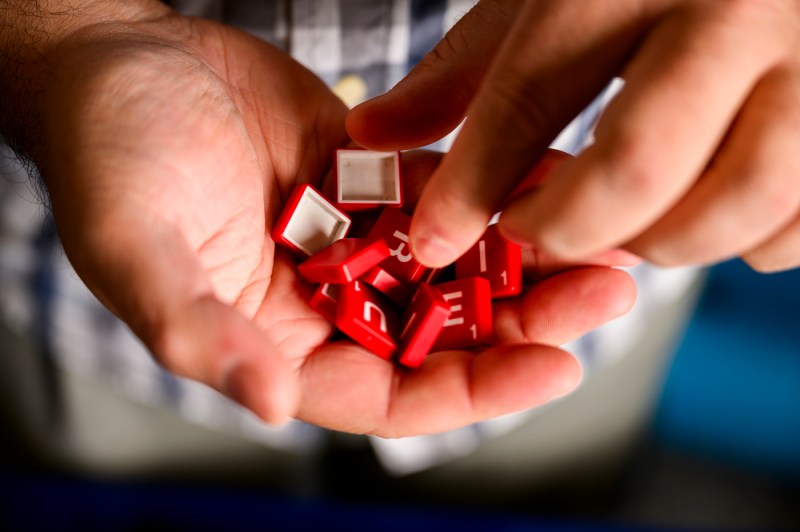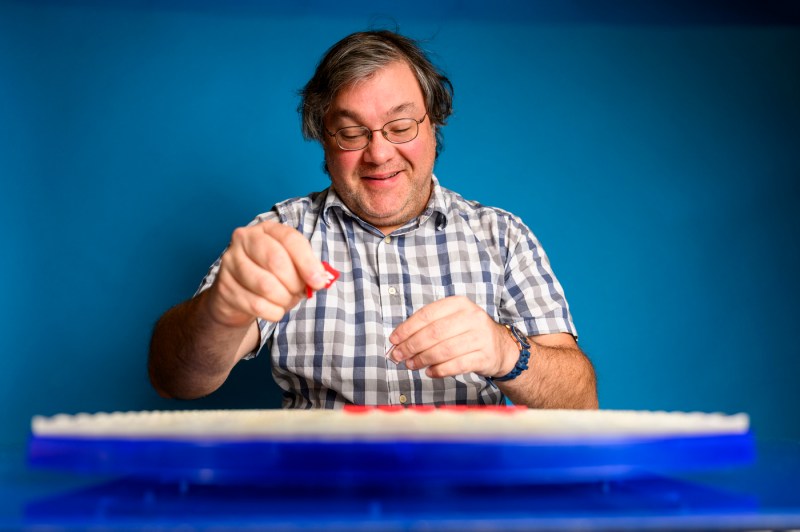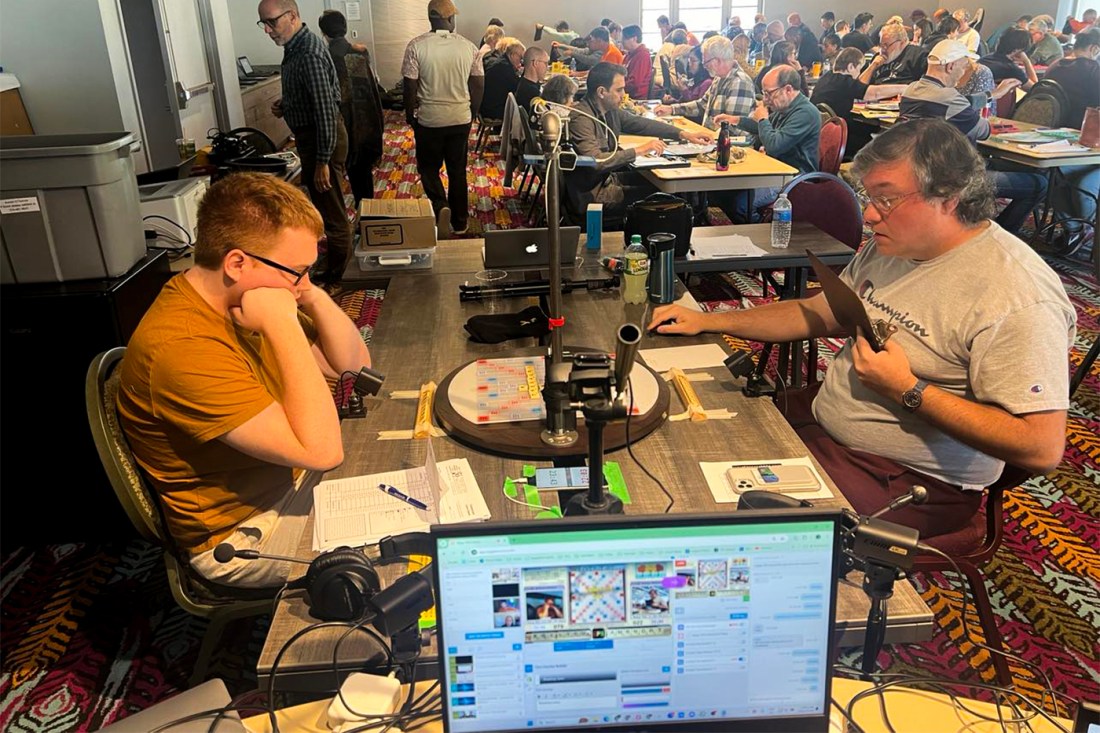National Scrabble champion and Northeastern tech expert? That’s Bradley Whitmarsh
The assistant director of computer services at Northeastern’s School of Law ranks as one of the top 100 Scrabble players in the country.

Bradley Whitmarsh loves to solve puzzles.
One of his favorite parts of working as the assistant director of computer services at Northeastern University’s School of Law is helping people troubleshoot their technical issues.
“Somebody comes to you with a problem and your job is to solve it, so you think ‘These are the ideas I have and this seems the most likely so I’ll try that first and if I can’t fix it, do I know who to contact to get it fixed?’”
Whitmarsh brings that same love of problem-solving to Scrabble, and it’s been a winning strategy for the Northeastern graduate and 25-year employee.


He has been playing competitively since 2006 and is ranked as one of the top 100 Scrabble players in the country.
Last month, Whitmarsh placed third in the Collins Scrabble Words tournament in Lake George, New York, and later this year, he will be competing in the California Open Scrabble tournament in San Francisco.
“I was seeded in the 10th top division of the Collins, and I placed in third, which was really surprising because there were a lot of good players,” he says. “There were at least five players that were way better than me, and they paid down to fourth place. I wasn’t expecting to win anything, but I ended up doing better than usual.”
Like most people, Whitmarsh was first exposed to Scrabble as a kid. His family was big into board games. But it wasn’t until he started playing Literati, a Yahoo game loosely based on Scrabble, in 2003 that he really got hooked. A casual player, Whitmarsh was a part of several online leagues where he was not only improving his skills, but was making some lasting friends in the process.
In 2005, Whitmarsh attended the Boston Independent Film Festival in Davis Square and saw Word Wars, a 2004 documentary about the competitive Scrabble scene.
He was entranced.
I remember thinking, “Oh wow, I would do this.”
At the same time, he began to notice that several people who he played with online were competitive Scrabble players. They would often share their tournament reports on the message board.
“I was really interested in that, and after reading those I thought I could do that too,” he says.

So in January 2006, Whitmarsh played his first tournament in Brighton. While there was a definite learning curve he had to overcome — learning how to draw tiles, keep score and challenge opponent’s words — the years Whitmarsh had spent playing Literati served as a good foundation.
And it wasn’t challenging for him to rise up the ranks.
“I started studying a lot of words at the beginning to try and get good quickly,” he says. “I don’t remember where my ranking was but you get a rating and having a rating above 1,800 is considered an expert, and I hit that within a year and a half.”
If you were to ask Whitmarsh why he loves the game, he wouldn’t say it’s because he’s a big fan of reading, words or linguistics.
“It’s not any of that stuff, though I don’t dislike those things,” he says. “It’s a puzzle, and I love solving puzzles. Given the tiles that you are drawing, what would be the way to maximize your score based on those tiles?”
The best Scrabble players understand that doing well in a game involves more than the letters you play and how much you score in a turn. Another important consideration is to think about which letters you should leave on the rack, he says.
“Because you could theoretically score the highest amount on every turn based on which letters you have, but then you’d end up with U,U,L,W, and X on your rack, and it’s like, “What am I going to do with those the next turn?” You want to balance scoring now and scoring later,” Whitmarsh says.
To practice for competitions, Whitmarsh has a couple of strategies. One of the best ways is to just learn a lot of words and their definitions. That admittedly can be a time-consuming process, but it’s one of best ways Whitmarsh has found for words to stick.
Another method he uses is getting an assortment of letters, putting them in alphabetical order, and then coming up with words based on those letter combinations.
“For example, I’ll know that A,C,I,N,R,T,U is curtain,” he says.
He also plays Quackle, a computer game and analytics tool developed by two Scrabble champions. Players play Scrabble against a computer and are given direct numerical feedback on how they are playing.
It’s a pastime that has taken him all over the world for hundreds of tournaments, making stops in the U.S, Canada and the U.K.
But if he had to pick the most exciting country he’s ever played in, it would have to be Poland.
“Warsaw was a different world,” he says. “It was cool walking around the city by myself and thinking, ‘I’m halfway around the world.’”
